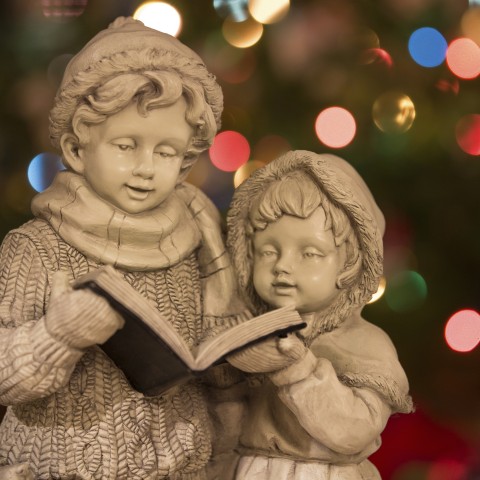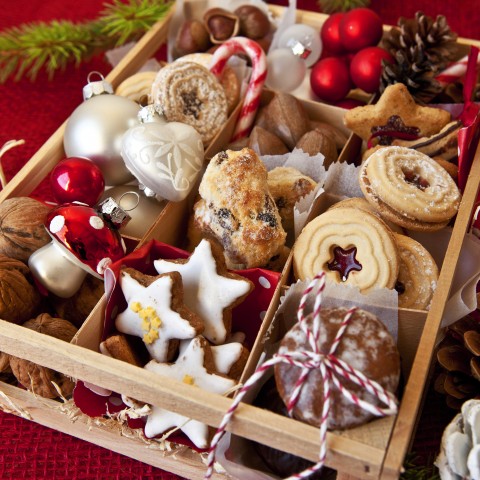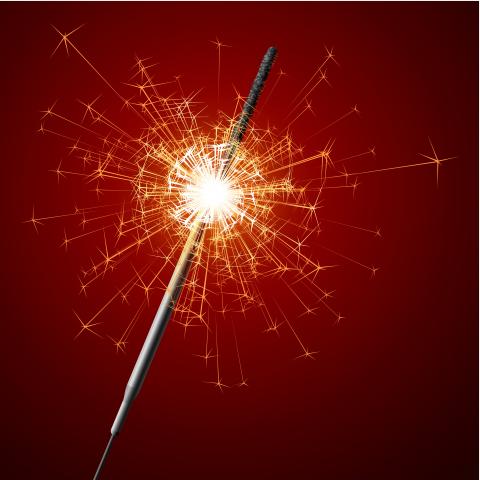In the Czech Republic, Epiphany (sometimes referred to as Three Kings Day), is a major Christian holiday with many fun traditions. From swimming in the Vltava River in Prague to watching men travel by camel for charity, Epiphany traditions in the Czech Republic are really something else!
In this article, you’ll learn more about how Czechs celebrate Epiphany as well as the stories behind the holiday.
At CzechClass101.com, we hope to make every aspect of your language-learning journey both fun and informative—starting with this article!
Are you ready? Let’s get started.
1. What is Epiphany?
Epiphany is a very old holiday. According to the Orthodox Church, this is the day Jesus Christ was baptized in the River Jordan. Thus the holiday is also called “Baptism of the Lord.”
According to Christianity, at the baptism of Jesus Christ, the secret of the Holy Trinity appeared—the Son Jesus Christ in human form, the Holy Spirit as a dove alighting upon Jesus, and the Divine Voice of the Heavenly Father.
Some Christians also celebrate Epiphany as the day the Tři Králové, or “Magi,” visited the Baby Jesus with their gifts. Thus, in the Czech Republic, Epiphany has become largely associated with charity and giving to those less fortunate.
2. Epiphany Date
Each year, the Czech Republic celebrates Epiphany on January 6.
3. How Do Czechs Celebrate Epiphany?
A popular Epiphany celebration in the Czech Republic is the traditional Three Kings swimming. Several men who feel up to the challenge go for a freezing-cold swim in the Vltava River, carried deep into the waters by boat.
Later on in the day, Prague marks Epiphany with three men dressed as the Magi proceeding on camels through Malostranské Square to the Old Town Square. This is meant to be a reenactment of the wise men’s journey to the Baby Jesus; once this is complete, the Půlnoční mše, or “midnight mass,” begins.
Children greatly enjoy celebrating Epiphany. Dressed as the Magi, they go from door-to-door and sing each person a koleda, or “carol,” in hopes of getting candies and Christmas cookies. Some children choose to ask for money to give to charity. After the house has been visited, the letters K, M, and B are written on it. It’s disputed whether these letters represent the first initials of each of the wise men, or if they’re taken from the Latin phrase “Christus mansionem benedicat.”
Like on most festive occasions, Czechs love to eat on Epiphany. A few favorite foods include carp (kapr), potato salad (bramborový salát), and of course, children are always glad when they receive a Christmas cookie (Cukroví) or two!
4. Bad Luck?
There are some people who believe that leaving the Christmas tree decorations up after Epiphany is a bad idea. Superstition says that doing so is just asking for bad luck!
So, on Epiphany, people who haven’t yet put away every single ozdoba, or “Christmas tree decoration,” may take some time to do that before the real festivities begin.
If you want to read a little bit more about this superstition around the world, check out this article by The Telegraph!
5. Must-Know Czech Vocabulary for Epiphany
Ready to review some of the vocabulary we covered in this article? Here’s the essential Czech vocabulary you should know for Epiphany!
- Svíčka — “Candle”
- Kapr — “Carp”
- Půlnoční mše — “Midnight mas”
- Koleda — “Carol”
- Zlaté prasátko — “Golden pig”
- Bramborový salát — “Potato salad”
- Ježíšek — “Jesus”
- Zjevení Páně — “Epiphany”
- Ozdoba — “Christmas tree decoration“
- Prskavka — “Sparkler”
- Cukroví — “Christmas cookie”
- Stromeček — “Christmas tree”
- Tři Králové — “Magi”
- Betlém — “Christmas Crib”
To hear each of these vocabulary words pronounced, and to read them alongside relevant images, be sure to check out our Czech Epiphany vocabulary list!
Final Thoughts
We hope you enjoyed learning about Epiphany in the Czech Republic with us!
Do you celebrate Epiphany in your country? If so, how? Let us know in the comments!
If you’re interested in learning more about Czech culture, or just want some more wintery words to get you through the next couple of months, you may find the following pages useful:
- Top 5 Things You Need to Know About Czech Pop Culture
- Top 5 Things You Need to Know About Czech Society
- What’s Your Favorite Czech Food?
- Words for Winter Snow Days
- How Will You Spend Your Winter Holiday?
Learning Czech doesn’t have to be boring or overwhelming—with CzechClass101.com, it can even be fun! If you’re serious about mastering the language, create your free lifetime account today.
Happy Czech learning! 🙂














